Project of European Capital of Culture to Raise Rijeka's Visibility
ZAGREB, February 1, 2020 - Rijeka Mayor Vojko Obersnel said on Saturday, when the Rijeka was given the title of the European Capital of Culture in 2020, that this project would heighten the visibility of this Croatian seaport in every sense and leave rich heritage, including the developed infrastructure for cultural events.
On 1 February, Rijeka and the Irish coastal city of Galway take the title of European Capitals of Culture in 2020.
In Rijeka, the year-long events are to be held under the slogan "The Port of Diversity".
"The shared experience of the two capitals of culture, in terms of cultural vibrancy and historical connections, makes 2020 an exciting time to strengthen ties, create cultural opportunities and develop long-lasting relationships," reads the information published on the official website of project for Galway.
On Saturday, before the official ceremony for the inauguration of Rijeka as the European Capital of Culture this year, Mayor Obersnel held a news conference at which he expressed satisfaction with the first events within opening programmes.
Some 220 organisations and societies from 40 countries have participated in the preparations of the programmes for the project.
Commenting on the condemnation on the part of the Croatian Disabled Homeland War Veterans' Association (HVIDRA) of the display of the flag of the former Yugoslavia on posters in Rijeka ahead of the formal inauguration of this northern Adriatic city as European Capital of Culture, the mayor said that the history could not be changed.
In this context the mayor said that in Rijeka's main street Korzo there were temporarily the flags of states in which Rijeka used to be in the last 100 years. One of those state unions was also Yugoslavia, and the flags of the Kingdom of Italy and of the German Third Reich are also put on display in accordance with the timeline of how those states succeeded one another in this region, according to the mayor's explanation.
Also the perpetrator who painted in red a poster illustrating the flag of the Socialist Federal Republic of Yugoslavia (SFRY) in Korzo was arrested by the police. The poster was replaced by a new one in the meantime.
More Rijeka news can be found in the Lifestyle section.
Projects by Zagreb and Rijeka Exhibited at Cities Forum
ZAGREB, February 1, 2020 - The European Commission presented about 30 projects at the Cities Forum 2020, held in Porto on Thursday and Friday, including the digitisation of the City of Zagreb's administration and the conversion of a former factory into a cultural centre in Rijeka.
The Cities Forum is a European Commission initiative aimed at presenting positive examples of the absorption of cohesion funds including the future of the Urban Agenda for the EU. This year's forum attracted about 800 representatives of cities, countries and the EU.
The City of Zagreb decided in 2012 to introduce "smart administration procedures," and in 2016 and 2018 it participated in projects to digitise public administration procedures.
The European Commission cited the project "Organisational development - managing the City of Zagreb's business processes" as an example of good urban practice. The project was exhibited along with projects from Rotterdam, Paris, Brussels, Brno, Turin, Lille, Bielefeld and Ghent.
The City of Rijeka launched a project in early 2019, which is expected to be completed by 2021, with the intention of transforming four buildings which once housed sugar, cigarette and engines factories into the city's main cultural centre. The centre will house the Museum of Modern and Contemporary Arts, the City Museum, a children's house and the city library.
The EC said that the project is an example of how to revitalise industrial heritage in an urban environment and how to combine different sources of financing.
The project received €13.2 million from the European Regional Development Fund which is aimed at strengthening economic and social cohesion in the European Union by correcting imbalances between its regions.
More Rijeka news can be found in the Lifestyle section.
Flights to Croatia: Vueling from Paris to Dubrovnik, Condor Boosts Germany to Split
January 30, 2020 - The latest news from around Croatia’s airports for new flights to Croatia with updates from Dubrovnik, Split, Zadar, and Rijeka.
Avio Radar reports that Spanish low-cost carrier Vueling has announced a new route from France to Dubrovnik as part of this summer’s flight schedule. Namely, the Paris (Rossy-Charles de Gaulle Airport)-Dubrovnik service will run twice a week, on Mondays and Fridays, from the beginning of the summer flight schedule, or March 30, 2020.
This will be the first Vueling line from France to Croatia. This route remains in operation until the end of the summer flight schedule with two flights per week. An Airbus A320 aircraft will work on this line.
Furthermore, Avio Radar reports that the German airline Condor will increase traffic from Germany to Split for the 2020 summer flight schedule. The Dusseldorf-Split line has been strengthened, and instead of last year’s two flights per week, on Thursdays and Sundays, there will be a third flight per week this year on Fridays. An Airbus A321 aircraft will operate on this line, which will begin three weeks earlier than last year, or, from April 10.
The Frankfurt-Split route will keep three flights a week, on Fridays, Sundays, and Tuesdays instead of Thursdays. The third line between Hanover and Split will work on Friday and Sunday.
In contrast, Condor will reduce traffic from Germany to Zadar. Namely, last year’s lines from Dusseldorf and Hanover to Zadar have been canceled. Only the Frankfurt-Zadar line remains in operation with one flight per week, on Sundays. It will also begin working a month later compared to last year, or from May 31, 2020.
The Frankfurt-Dubrovnik line will operate once a week, on Sundays instead of Saturdays, but will begin working a month and a half later than last year, or from May 31, 2020. The Frankfurt-Rijeka line remains in operation twice a week, on Thursdays and Saturdays, just as it did last year. The Airbus A320 aircraft has been announced on all other routes listed.
To read more about travel in Croatia, follow TCN’s dedicated page.
Croatian First Football League Returns this Weekend for Spring Season
January 29, 2020 - The Croatian First Football League returns this weekend. Inter Zaprešić and Istra will open the spring season in Zagreb on Friday.
The new season of the Croatian First Football League began on July 19, 2019. Dinamo currently leads the table to claim the Croatian champion title once again.
The current season is especially interesting because five clubs, or half the league, will fight in European competitions in the summer of 2020. The first and second-placed teams will qualify for the Champions League, while the third, fourth, and fifth-placed teams will compete in the Europa League qualifiers.
This season of the Croatian First Football League is played as in previous seasons, with a total of 36 rounds.
The first half-season ended on December 18 with back-to-back games between Dinamo and Rijeka, and the big news for the spring part of the season is that video technology (VAR) will be used.
1st round:
Osijek - Slaven Belupo 2:0
Dinamo - Lokomotiva 3:0
Rijeka - Varaždin 2:1
Gorica - Inter Zaprešić 1:1
Hajduk - Istra 1961 2:0
2nd round:
Inter Zaprešić - Istra 1961 0:2
Varaždin - Hajduk 0:3
Lokomotiva - Rijeka 0:1
Slaven Belupo - Dinamo 0:3
Gorica - Osijek 3:1
3rd round:
Dinamo - Gorica 3:1
Istra 1961 - Varaždin 3:1
Rijeka - Slaven Belupo 3:1
Hajduk - Lokomotiva 3:0
Osijek - Inter Zaprešić 3:1
4th round:
Inter Zaprešić - Varaždin 2:2
Lokomotiva - Istra 1961 4:1
Slaven Belupo - Hajduk 2:1
Gorica - Rijeka 2:0
Osijek - Dinamo 0:0
5th round:
Inter Zaprešić - Dinamo 1:2
Rijeka - Osijek 1:1
Hajduk - Gorica 3:0
Istra 1961 - Slaven Belupo 2:3
Varaždin - Lokomotiva 1:1
6th round:
Inter Zaprešić - Lokomotiva 1:2
Slaven Belupo - Varaždin 1:1
Gorica - Istra 1961 1:1
Osijek - Hajduk 1:0
Dinamo - Rijeka 3:0
7th round:
Rijeka – Inter Zaprešić 1:1
Hajduk – Dinamo 1:0
Istra 1961 - Osijek 0:0
Varaždin – Gorica 1:3
Lokomotiva – Slaven Belupo 6:1
8th round:
Dinamo - Istra 1961 1:0
Inter Zaprešić - Slaven Belupo 3:1
Gorica - Lokomotiva 0:0
Osijek - Varaždin 2:2
Rijeka - Hajduk 1:1
9th round:
Lokomotiva - Osijek 2:1
Slaven Belupo - Gorica 2:0
Varaždin - Dinamo 1:0
Hajduk - Inter Zaprešić 3:1
Istra 1961 - Rijeka 0:3
10th round:
Inter Zaprešić - Gorica 0:2
Slaven Belupo - Osijek 0:4
Lokomotiva - Dinamo 0:4
Varaždin - Rijeka 0:2
Istra 1961 - Hajduk 1:1
11th round:
Istra 1961 - Inter Zaprešić 2:2
Hajduk - Varaždin 2:0
Rijeka - Lokomotiva 1:1
Dinamo - Slaven Belupo 1:0
Osijek - Gorica 2:1
12th round:
Inter Zaprešić - Osijek 3:3
Gorica - Dinamo 2:4
Slaven Belupo - Rijeka 1:2
Lokomotiva - Hajduk 0:0
Varaždin - Istra 1961 1:0
13th round:
Varaždin - Inter Zaprešić 0:1
Istra 1961 - Lokomotiva 0:2
Hajduk - Slaven Belupo 2:0
Rijeka - Gorica 1:2
Dinamo - Osijek 1:0
14th round:
Dinamo - Inter Zaprešić 1:0
Osijek - Rijeka 3:2
Gorica - Hajduk 2:1
Slaven Belupo - Istra 1961 0:0
Lokomotiva - Varaždin 2:1
15th round:
Lokomotiva - Inter Zaprešić 3:1
Varaždin - Slaven Belupo 0:0
Istra 1961 - Gorica 2:2
Hajduk - Osijek 3:2
Rijeka - Dinamo 0:5
16th round:
Inter Zaprešić - Rijeka 1:4
Dinamo - Hajduk 1:1
Osijek - Istra 1961 1:0
Gorica - Varaždin 1:0
Slaven Belupo - Lokomotiva 1:0
17th round:
Slaven Belupo - Inter Zaprešić 3:0
Lokomotiva - Gorica 4:0
Varaždin - Osijek 1:1
Istra 1961 - Dinamo 1:2
Hajduk - Rijeka 0:4
18th round:
Inter Zaprešić - Hajduk 1:1
Rijeka - Istra 1961 2:0
Dinamo - Varaždin 1:0
Osijek - Lokomotiva 4:0
Gorica - Slaven Belupo 2:0
19th round:
Gorica - Inter Zaprešić 1:1
Osijek - Slaven Belupo 3:2
Dinamo - Lokomotiva 1:0
Rijeka - Varaždin 3:1
Hajduk - Istra 1961 2:1
20th round:
Inter - Istra 1961 (Friday, 31 January at 18:00)
Varaždin - Hajduk (Sunday, 2 February at 15:00)
Lokomotiva - Rijeka (Saturday, 1 February at 15:00)
Slaven Belupo - Dinamo (Saturday, 1 February at 17:30)
Gorica - Osijek (Sunday, 2 February at 17:30)
21st round:
Osijek - Inter Zaprešić (Saturday, 8 February at 15:00)
Dinamo - Gorica (Sunday, 9 February at 17:30)
Rijeka - Slaven Belupo (Sunday, 9 February at 15:00)
Hajduk - Lokomotiva (Saturday, 8 February at 17:30)
Istra 1961 - Varaždin (Friday, 7 February at 18:00)
22nd round:
Inter Zaprešić - Varaždin (Saturday, 15 February at 15:00)
Lokomotiva - Istra 1961 (Friday, 14 February at 18:00)
Slaven Belupo - Hajduk (Saturday, 15 February at 17:30)
Gorica - Rijeka (Sunday, 16 February at 17:30)
Osijek - Dinamo (Sunday, 16 February at 15:00)
23rd round:
Dinamo - Inter Zaprešić (Sunday, 23 February at 15:00)
Rijeka - Osijek (Saturday, 22 February at 17:30)
Hajduk - Gorica (Saturday 22 February at 15:00)
Istra 1961 - Slaven Belupo (Sunday, 23 February at 17:30)
Varaždin - Lokomotiva (Friday, 21. February at 18:00)
24th round (28 February – 1 March):
Inter Zaprešić - Lokomotiva
Slaven Belupo - Varaždin
Gorica - Istra 1961
Osijek - Hajduk
Dinamo - Rijeka
25th round (3 – 5 March):
Rijeka - Inter Zaprešić
Hajduk - Dinamo
Istra 1961 - Osijek
Varaždin - Gorica
Lokomotiva - Slaven Belupo
26th round (7 – 9 March):
Inter Zaprešić - Slaven Belupo
Gorica - Lokomotiva
Osijek - Varaždin
Dinamo - Istra 1961
Rijeka - Hajduk
27th round (13 – 15 March):
Hajduk - Inter Zaprešić
Istra 1961 - Rijeka
Varaždin - Dinamo
Lokomotiva - Osijek
Slaven Belupo - Gorica
28th round (20 – 22 March):
Inter Zaprešić - Gorica
Slaven Belupo - Osijek
Dinamo - Lokomotiva
Varaždin - Rijeka
Istra 1961 - Hajduk
29th round (3 – 5 April):
Istra 1961 - Inter Zaprešić
Hajduk - Varaždin
Rijeka - Lokomotiva
Dinamo - Slaven Belupo
Osijek - Gorica
30th round (9 – 11 April):
Inter Zaprešić - Osijek
Gorica - Dinamo
Slaven Belupo - Rijeka
Lokomotiva - Hajduk
Varaždin - Istra 1961
31st round (17 – 19 April):
Varaždin - Inter Zaprešić
Istra 1961 - Lokomotiva
Hajduk - Slaven Belupo
Rijeka - Gorica
Dinamo - Osijek
32nd round (21 – 23 April):
Inter Zaprešić - Dinamo
Osijek - Rijeka
Gorica - Hajduk
Slaven Belupo - Istra 1961
Lokomotiva - Varaždin
33r round (25 – 27 May):
Lokomotiva - Inter Zaprešić
Varaždin - Slaven Belupo
Istra 1961 - Gorica
Hajduk - Osijek
Rijeka - Dinamo
34th round (1 – 3 May):
Inter Zaprešić - Rijeka
Dinamo - Hajduk
Osijek - Istra 1961
Gorica - Varaždin
Slaven Belupo
35th round (8 – 10 May):
Slaven Belupo - Inter Zaprešić
Lokomotiva - Gorica
Varaždin - Osijek
Istra 1961 - Dinamo
Hajduk - Rijeka
36th round (15 – 17 May):
Inter Zaprešić - Hajduk
Rijeka - Istra 1961
Dinamo - Varaždin
Osijek - Lokomotiva
Gorica - Slaven Belupo
Source: Gol.hr
To read more about sport in Croatia, follow TCN's dedicated page.
Croatian Director of Netflix 'The Paper' on Final Season: Dalibor Matanić
Art or culture must reflect society and the moment in which we live, according to Dalibor Matanić, talented Croatian director of the world-acclaimed series “The Paper” (Novine). The series, based in Rijeka, can be streamed worldwide on Netflix and is available with English subtitles.
Every form of culture, including provocation, must be aimed at establishing dialogue. Creating a culture of dialogue is extremely important, to get out of the divisions and move away from where you were in '91. I want the most important question to be where you will be in 2020. It is a much more important question for today and for the society in which we live. Lots of noise and negative reactions are fueled by those who would like to control culture, and we know that this is not turning out very well, the director reveals to Danijela Bauk/Novi List January 21, 2020.
Third Final Season of ‘The Paper’ Premieres in Rijeka January 25
Dalibor Matanić has his hands full these days. He and his team for the acclaimed series "The Paper", are looking forward to the Rijeka premiere of the third and final season, will take place on Friday, January 25 at Art-Kino. And then another completely new challenge awaits him - directing the main opening program for Rijeka 2020 - the European Capital of Culture at the port of Rijeka, or the "Opera Industrial" program which will include more than 120 performers. There is also the recent premiere of "Zora" (Dawn), the sequel to the award-winning "Zvizdan" (High Sun), or the second part of the trilogy "Sunce" (Sun). He is also preparing a play "Berlin" for the Croatian National Theater. Recently, for the third time, he became a father. He and wife, actress Helena Minić, welcomed a son, who they named Neo.
But let's start at the beginning. The premiere of the first two episodes of the final season of "The Paper" will take place on January 25 at Art-Kino in Rijeka.
“We will show the first two episodes of the final and third season of ‘The Paper’. Everything is ready to go. I anticipate that this third season will be a very interesting and unexpected for our audience, as we probe deeper into the characters, their inner world, and deal with this final account of corruption and transition which we introduced during the first season. The main theme of the third season is the judiciary, in the first season we covered the media, in the second politics. But this time we are focusing on the characters, they are the ones who judge things, who carry us forward. This third season is focused mostly on characters, and less on action, the characters move into confrontations with their opponents, and with themselves. We go into the depths of the characters, and analyze them from the inside,” Matanić reveals.
This way of working, the in-depth character analyses was first made possible by a great acting team, but also by screenwriter Ivica Đikić, who upgraded and expanded the script.
Film Productions Like Jazz Sessions or Improvisations
“Our film productions sometimes seem like jazz sessions, or music improvisations during which just about everyone, including those in front and behind the cameras, give everything they have. Above everything else, Rijeka has enjoyed a place in the spotlight, as the city plays an important role in all three seasons of the series. I can truly say that we have had optimal conditions, a great cast with up to 90 actors per season, a city with a special vibe, the right atmosphere which resembled a music session. We also have a great production crew. It has been an ideal work culture and one of mutual respect. We felt the progress from season to season and were constantly discovering new ‘languages’”.
“That’s why I think the series is so successful too. We did not work according to an established format and did not strictly adhere to what was written in the script but were open letting the scenes evolve. It all coincided, with the script by Ivica Đikić, the producers from Drugi plan (The Second Plan), and fantastic actors led by Branka Katić and Dragan Despot. Ivica Đikić 's flexible scriptwriting allowed us to work this way and allowed us to improvise.”
‘The Paper’ Storyline Reflects Real World Croatian Situations
“There are screenwriters who don't allow interventions and stick to their script like a Bible. We did things differently and constantly updated both the story and the characters. That's why I believe we have had such a positive audience response. And that is why the audience discovered similarities to the real world during our second season. This is our reality, and some of the motives and characters remind the audience of real events and people. In the third season, we completely delve into the characters, discover their various layers, inner emotions, and I hope that the audience will find this approach interesting too. Especially since they are already familiar with the characters; we will give insight into some of their inner, hidden ‘worlds’. We’ll allow them to discover that all the characters are made of flesh and blood, and that nothing is black and white. We also find that humans often act like animals. I directed the third season, or the season of characters, as a kind of western – a modern western with skirmishes between characters along with the internal struggles of characters,” says the award-winning Croatian director.
And audiences have been responding to this high-caliber work. Rarely has any Croatian series sparked such widespread interest, with audiences eagerly expecting each new season. And the bar has been set high, as the first two successful seasons significantly raised expectations. After all, the increased competition of world series productions has raised their overall quality, so the audience is more educated, has higher expectations and recognizes quality output.
Croatian Corruption Rarely Portrayed in Bold Courageous Manner
“We really have an army of fans, not just casual viewers, but loyal fans who closely follow each detail of every episode of every season of the series. Our domestic audience, as well as those who watch the series from abroad, recognize that there are not very many brave series out there like ‘The Paper’, and foreign critics have often pointed this out. There are few attempts so courageous to portray corruption and transition in this manner. After all, ‘The Paper’ is not an easy series to watch, you could go to the bathroom and lose a story line which is critical for understanding the entire series. The audience is not stupid or simple-minded. They expect more, especially because they also follow foreign series productions. They see what is being filmed worldwide and compare us to foreign productions even though we are not on an equal footing with them. We are proud of our consistency ever since our very first season.”
“We have said that this series was a trilogy and we sticking to that plan. There won’t be any sequels after this season, although I personally believe that the whole team wouldn’t mind working on this set until they retire. This way of working, the everyday creative energy, which has filled us all with pleasure and happiness, is not common scenario as far as I know. We have worked together for four years and have spent about a year together. This must be sustainable, because it is also a kind of creative madness, like an amusement park or children's playground. But this set, vibe and atmosphere allowed us to shoot this series. After we finished filming, I said that I hope to have another opportunity to direct this kind of project, God willing.”
Overseeing Rijeka European Capital of Culture Program
Matanić will also oversee the opening of the ECOC (European Capital of Culture) at Rijeka's port on February 1.
“Directing the main program for the opening of the European Capital of Culture is actually a kind of continuation of the story we began with the promotional movie ‘Port of Diversity’. They asked me to give them a hand, and after all, these are friends and people I have already worked with. That moment, that collective awareness that Croatia is getting the European Capital of Culture recognition is very important. I think that Rijeka's ECOC is being managed by a great team of professionals who are not only working on an opening program, but also one that will run through the entire year.”
“Yes, I cheered for Rijeka, although some of other candidate cities were great too. And I'm glad that Rijeka won. Now we need to capitalize on this victory, and awaken awareness that culture is for everyone. We need build a bridge to the audience, so that they perceive that something truly important is happening. We must educate and open minds, because culture must not be self-sacrificing or incomprehensible. After all, the basis of the ECOC's philosophy is to bring culture from institutions to the streets and bring it closer an audience who might not otherwise be reached. One needs to find a key, a code for how to bring people to the message behind a work of art.
Art or Culture Must Reflect the Society We Live In
That key, or that code is important. Lately, a lot of ruckus has been raised about the erection of Kožarić's "Therefore Hay" and the announcement of the placement of a star on top of the Rijeka Skyscraper, as a temporary art installation by Nemanja Cvijanović. Matanić himself knows a lot about this kind of ruckus. At one time, his video for the ECOC’s "Port of Diversity" provoked strong negative reactions. So, does he believe that art must be just beautiful and enjoyable, or does it still have to question society and the present, especially in projects for the ECOC?
“I am the wrong person to ask if the culture should be just comfortable or cultivated. Art or culture must above all reflect the society and the moment in which we live. Every form of culture, including provocation, must be aimed at establishing a dialogue. Safe culture doesn’t accomplish anything, modern art must respond to all good and bad in society, and to every anomaly. But again, what is extremely important is that dialogue respects on both sides; then that dialogue will accomplish something good. Creating a culture of dialogue is extremely important, to escape the divisions and move away from where you were in '91. I want the most important question to be where you will be in 2020. It is a much more important question for today and for the society in which we live. Lots of shouting and negative reactions are fueled by those who would like to control culture, and we know that this is not turning out very well.”
Film ‘Zora’ Premiere and Fall Debut at Croatian National Theatre
After the premiere of "The Paper" and the opening of the ECOC; Matanić is also set to premiere the movie "Zora" (Dawn), the sequel to "Zvizdan" (High Sun), which won the jury award at the 2015 Cannes Film Festival in the competition "Izvjestan pogled” (Un Certain Regard).
“’Zora’, the second part of the ‘Sunce’ trilogy, will premiere this summer. Personally, I can say that ‘Zvizdan’ was a more accessible film, much more than ‘Zora’ will be. ‘Zora’ is a more avantgarde and moves radically forward. We deal with all the obstacles that can destroy love, and love must be strengthened to defeat cynicism and negative social movements. We are also concerned with people, individuals and society. The work is set in a bland future, a few years ahead of the present and ‘anticipates’ some things that might happen if we didn't respect human postulates,” says Matanić.
But that's not all. At the end of the year, his first theatre production will premiere at the HNK (Croatian National Theatre) in Zagreb, where he will stage the play "Berlin" by Ivor Martinić.
“It is also a sequel to the play ‘The Damned’ after the cult film of the same name by Luchino Visconti produced at SNG Maribor, whose dramatization was also written by Ivor Martinić. In this play we will point out that fascism is dangerous and that we must not dance around this issue in contemporary culture. Croatian fascism is the greatest evil that impacted our country and I find such ideas unacceptable today. It is our responsibility to make this country better, to make Croatian society better. Artists and culturalists are not businessmen, economists or politicians. We do not have a lot of power, but we can point out problems and anomalies, and I think that is our responsibility. And the audience responds well to these efforts. I believe that we all desire deep within ourselves to live in a more normal and peaceful place, rather than in an atmosphere of constant tension, or Balkan cauldron where something is constantly cooking and boiling,” Matanić concludes.
‘The Paper’ Has Promoted Rijeka As Filming Location
“The Paper” series has done a great deal, not only for Croatia, but also for the worldwide promotion of Rijeka. The series is currently available worldwide through Netflix's streaming service and locations in Rijeka and surrounding areas are presented not only to audiences, but to worldwide production companies and filmmakers, who are increasingly interested in filming in and around the city.
“A lot of foreigners and journalists have come to Rijeka after watching ‘The Paper’ and we know this firsthand. We have filmed and showcased Rijeka like no one ever has before. Therefore, it has become a unique and attractive location for foreign productions, which are increasingly being filmed in the city and surrounding locations. Rarely does a city or region have proximity to the sea and mountains, unusual city vistas and attractive natural sites. If we were to film for ten more seasons, we would still not be able show all the locations and views that Rijeka has to offer. It is very interesting that a city that is not very large offers so much diversity, and that makes it quite fascinating. I think it's simply a well-deserved compliment to the city.”
“Recently, Mercedes was shooting an advertisement at the same location we used for ‘The Paper’. But beyond the fantastic micro-locations and different vistas, there is this warmth of the city and its residents who accept everyone with open arms. We have always felt more than welcome, and that is very important. We never felt that we were disturbing anyone. But this is Rijeka, it's always been like that. Yet it is a multicultural city that accepts difference and that means everything. We have really felt this in the best possible way. I know what I'm talking about, because I've shot in several other Croatian cities and towns.”
Follow our Lifestyle page for more information and updates on talented Croatian directors and artists. For more information on Dalibor Matanić, check out his YouTube page.
Flights to Croatia: Tunisair Returns to Zagreb, New Offseason Service for Rijeka-Copenhagen
January 23, 2020 - The latest news from around Croatia’s airports for new flights to Croatia with updates from Zagreb and Rijeka.
Avio Radar reports that the new Danish carrier Great Dane Airlines will fly on a new charter line from Denmark to Rijeka. Namely, the line will operate this offseason between Copenhagen and Rijeka, on Tuesdays and Thursdays from September 10 to October 15.
This service is operated by Best Travel tourist agency, and is also the airline's first charter flight to Croatia. The Embraer ERJ-195 will fly on this route. It is also currently the only direct route from Denmark to Rijeka.
Avio Radar also reports that Tunisia’s national carrier Tunisair will again fly on the Zagreb-Monastir charter service, which will operate once a week, on Wednesdays, from May. 27 to October 7, 2020. The line was last in service in 2014, and will currently be the only direct line from Croatia to any destination in Tunisia. An Airbus A320 aircraft will operate on this line.
Furthermore, HRTurizam writes that beginning May 4, 2020, Air France is offering another direct flight from Zagreb to Paris.
In addition to the existing two direct flights, one of which is in cooperation with Croatia Airlines, a total of three flights to Paris are on offer on daily. The new flight allows passengers to depart and return to Paris in one day, but also to board a flight to North America.
Namely, the new airline will provide quality connectivity to North America for all travelers continuing to these destinations, which is certainly an interesting combination and a benefit for Croatian tourism.
"I am very pleased to introduce this additional flight with a night stop in Zagreb. This flight offers excellent connectivity via Paris Charles de Gaulle Airport to other destinations. Going to Paris and returning to Zagreb on the same day is an added benefit for Croatian travelers. With the new Alloff flight schedule, you can more easily access - among other things - North American destinations, such as New York, Atlanta, Boston, Los Angeles, San Francisco or Seattle and Vancouver,” said Ildiko Kiss Country Manager for Croatia, Serbia and Slovenia.
The new flight will be operated by Airbus 319/320 with 137/166 seats.
To read more about travel in Croatia, follow TCN's dedicated page.
IFFHS Ranks Most Successful Football Clubs in 2019, Dinamo Number 11
January 22, 2020 - The International Institute for Football History and Statistics has released a table of the most successful clubs in 2019, with the Croatian champion Dinamo coming in 11th place.
According to the calculations of the International Institute of Football History and Statistics (IFFHS), the current European champion Liverpool is the best club in 2019, ahead of Spanish club Barcelona, Manchester City and Brazil's Flamenco, the only South American representative among the top ten.
Croatian clubs are led by national champion Dinamo, which is just behind the top ten, in a high 11th place with 234 points, ahead of Brazilian greats Palmeiras and Atletico Mineira. Dinamo has thus moved up an impressive ten places from the also successful 2018 ranking.
Recall, in 2019, Dinamo became the Croatian champion in April, securing the 30th championship title in the club's history and the 20th title for the club in independent Croatia.
Furthermore, Dinamo also advanced to the Champions League group stage. Though they finished last in the group, they had an impressive 4:0 win against Atalanta and drew to Shakhtar Donetsk twice. Dinamo was not as lucky against Manchester City, one of the best clubs in the world, losing 2:0 away and 1:4 at Maksimir.
The Croatian Cup champion Rijeka holds 108th place with 126 points, between teams Petro de Luanda and Al Nassar, followed by Osijek (200th), Hajduk (217th), Gorica (290th) and Lokomotiva (340th).
IFFHS, Club Ranking for 2019:
1. Liverpool 316
2. Barcelona 293
3. Manchester City 284
4. Flamengo 275
5. Celtic 269
6. Valencia 268
7. Ajax 249,5
8. Chelsea 249
9. PSG 243
10. Wolverhampton 236
11. Dinamo Zagreb 234
...
108. Rijeka 126
...
200. Osijek 94
...
217. Hajduk 90
...
290. Gorica 74
...
340. Lokomotiva 67
Source: HNS
To read more about sport in Croatia, follow TCN’s dedicated page.
Rijeka 2020 Opening Program: Thousands of Performers, All-Day Events, Everyone Invited
January 19, 2020 - On February 1, 2020, the city of Rijeka will be inaugurated as the European Capital of Culture. The Rijeka 2020 program will be a celebration of culture that lasts for 24 hours, offering many events for all ages, tastes, and styles.
Glas Istre writes that with the Opera Industriale, more than 70 events at more than 30 different locations in the city center, and a program that runs 27/7, Rijeka will officially become Europe’s most exciting city. The official European Capital of Culture program, which will run from February 1 to 24, was presented at a press conference on Saturday,
“Mobilizing culture in the organization and participation, with full hearts and good energy, which has not been seen for a long time, is happening in Rijeka on February 1, 2020, at the opening of the European Capital of Culture. It is a day to mark on your calendars to visit Rijeka, go to the city center and be part of the largest cultural party that lasts for 24 hours and offers many events for all ages, tastes and desires,” the organizers point out and announced that Rijeka will offer more than 600 cultural and artistic events in 365 days.
Opera industriale is the central opening program of Rijeka 2020 that begins at 7 pm at the Rijeka port. In it, Rijeka pays homage to its workers, the avant-garde artistry and the tradition of the region that surrounds it. At the same time, it reminds of the fundamental social values on which modern Europe was built. The port represents a strong identity point for Rijeka, it is a symbol of an open and modern Rijeka, and by choosing this space for the central opening program of the ECOC, Rijeka sends a message about the importance of understanding the Port of Diversity, which rests on accepting sails of all colors.
Opera industriale was created according to the musical template of the Rijeka art duo JMZM (Josip Maršić and Zoran Medved) in the orchestra of the Croatian composer, maestro Fran Đurović. The event will feature almost 150 performers and several thousand people in the audience. The director of the program is Dalibor Matanic. This grand open-air urban opera brings the sounds of the city, industry and noise, the music and effects created by the combination of light and darkness and the powerful symbol of Rijeka and Europe. Welders, sparks, noise grinders, sheets, and ironworks are symbols of the workers who proudly built Rijeka.
In addition to the central event in Rijeka's port, the Rijeka 2020 opening program also brings 24 hours of great fun to Rijeka's streets and squares, cafes and clubs. More than 70 events have been announced at over 30 downtown locations, with some 500 performers included in the program.
The morning and afternoon will be dominated by dance, drama and musical performances, and children's choirs, vocal groups and dancers. Especially interesting will be the daily pop up performances in unusual places, like singing or dancing at the Rijeka fish market, or the 'anti-tourist' tour on a Rijeka tour bus.
DJ performances will begin already in the afternoon at select locations, with a total of about 30 performances. Particularly noteworthy is DJ Nicky Siano, owner and designer of the space considered to be the first New York disco club, THE GALLERY, and the first resident of STUDIO 54.
In the afternoon, rock, pop, jazz and blues concerts will begin, with more than 60 bands. The stages will feature Jonathan, Parafi, Fit, Denis&Denis. At club Život you'll find electro-pop duo The Siids, and at Club Crkva tech-house collective Deep'n'Delicious. More performers will hit the stage at Palach, organized by RiRock, and numerous other venues will welcome Marko Tolja, Dusko Jeličić Bonaca, Izet Medošević, and more.
The DB Indoš – House of Extreme Music Theatre will feature The Rumorists who will play on schachtophones. A particularly attractive Finnish choir - Mieskuoro Huutajat - will also take part in this performance, as well as the Jeka Primorja mixed choir under the direction of Igor Vlajnic, and a string orchestra composed of members of the Croatian National Theater Ivan Zajc. The performance will also feature an ensemble of 20 Rijeka guitars and ten drummers and a workers' orchestra of grinders, welders and sparks, carrying the energy of Rijeka punk and rock.
Luminous and specially designed spatial installations will be erected at several locations at the port and leading to the port. The program also features lighted smaller boats and barges inside the port waters.
Rijeka will end its central opening ceremony by a sound that has surrounded it since ancient times - the sound of the Zvončari. Namely, a magical old pagan ritual will announce spring in the European Capital of Culture, a new era for Rijeka, from February 1, 2020.
On Saturday afternoon, part of the opening will be held at the Croatian National Theatre Ivan Zajc and senior guests from Europe and Croatia will attend. This vibrant full-day (and all-night) program guarantees a great time and a crazy extended weekend ahead for Rijeka, the organizers concluded.
You can find more information on the Rijeka 2020 program here.
To read more about travel in Croatia, follow TCN’s dedicated page.
500 Performers at Inauguration of Rijeka as European Capital of Culture
ZAGREB, January 18, 2020 - Around 500 performers will stage 70 events at 30 venues in the northern Adriatic city of Rijeka on 1 February 2020 as part of a day-long programme inaugurating that port city as the European Capital of Culture, and the central event will be Opera Industriale, to be staged at the city port.
Rijeka Mayor Vojko Obersnel told a news conference on Saturday that on 1 February Rijeka would be one of the most entertaining and one of the liveliest cities, not only in Croatia but in Europe as well.
More than 40 artistic organisations, associations, businesses, individuals and institutions will be taking part in the programme, he said.
Obersnel added that he was glad about the enthusiasm demonstrated by citizens and their response to the public invitation to participate in the opening ceremony.
Emina Višnić, director of the Rijeka 2020 company, which is the organiser of the European Capital of Culture project, called on Rijeka residents and guests to attend the opening ceremony, which will also be taking place on January 31 and February 2.
The opening ceremonies will start in the morning of 1 February with a get-together at the city's Skradin bar and city bus tours, with actresses Tanja Smoje and Jelena Lopatić as guides. This will be followed by numerous music and dance performances, open-air exhibitions and other events in the city's streets and squares.
The official part of the inauguration will be held at the Croatian National Threatre (HNK) in the afternoon, with a representative of the European Commission presenting city officials with a European Capital of Culture plaque. Members of the diplomatic corps, government officials, 16 EU culture ministers and representatives of previous and future European Capitals of Culture are expected to attend.
The central event of the opening ceremony, Opera Industriale, to be stage-directed by Dalibor Matanić, brings sound, music and noise as well as effects resulting from a combination of light and darkness and strong symbols of Rijeka and Europe. It will involve more than 120 performers as well as the audience, as several hundred bells will be distributed to parents with children at one moment so they can join in the programme.
The slogan of Rijeka as the European Capital of Culture 2020 is "The Port of Diversity". The city shares the designation with the Irish town of Galway.
More Rijeka news can be found in the Lifestyle section.
Scenic Eclipse Polar Yacht Owner Wants 5 More: 900 Million Euro for Croatian Shipyard?
Yesterday, TCN reported on the incredible story of Scenic Eclipse, the world's first polar discovery yacht cruiser, built in Croatia, christened by Dame Helen Mirren, and winner of the Cruise Critic Best New Luxury Ship 2019. A ship which is unique and setting the standards in high-end luxury cruise tourism. Read the full story here.
There have been developments to the story, as reported today in the Croatian media.
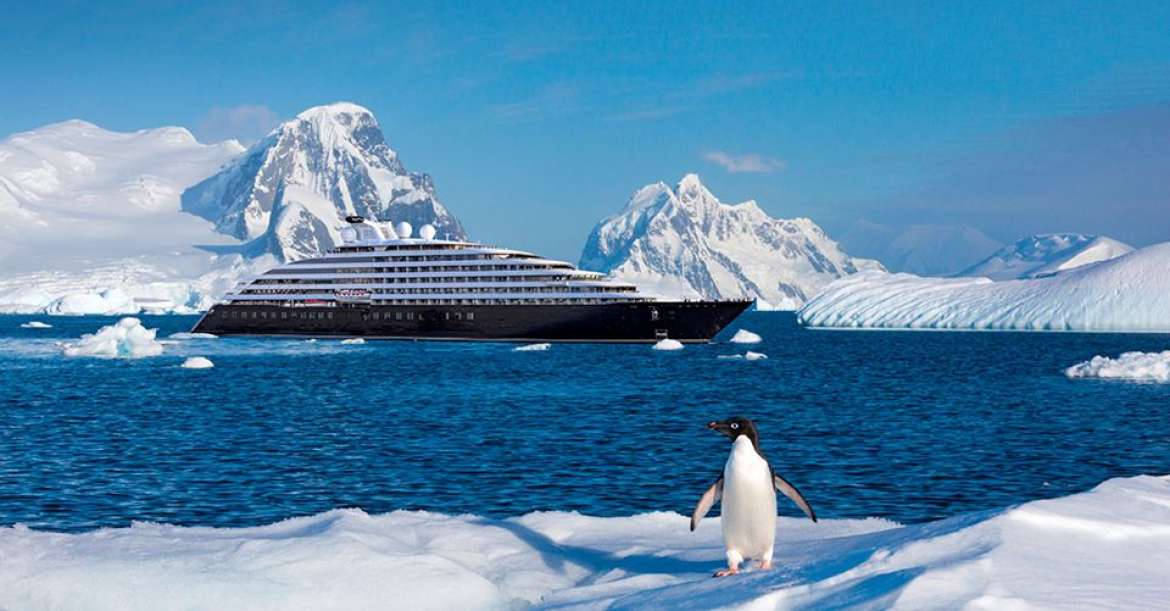
As Dnevnik/Ivan Forjan writes on the 15th of January, 2020, better business awaits the Rijeka shipyard 3 Maj and could arrive from as far away as Australia. After one of the most luxurious cruise ships in the world, Scenic Eclipse, was built in the Pula shipyard Uljanik last year, production should resume in Rijeka. The mega-investment is worth several hundred million euros in total.
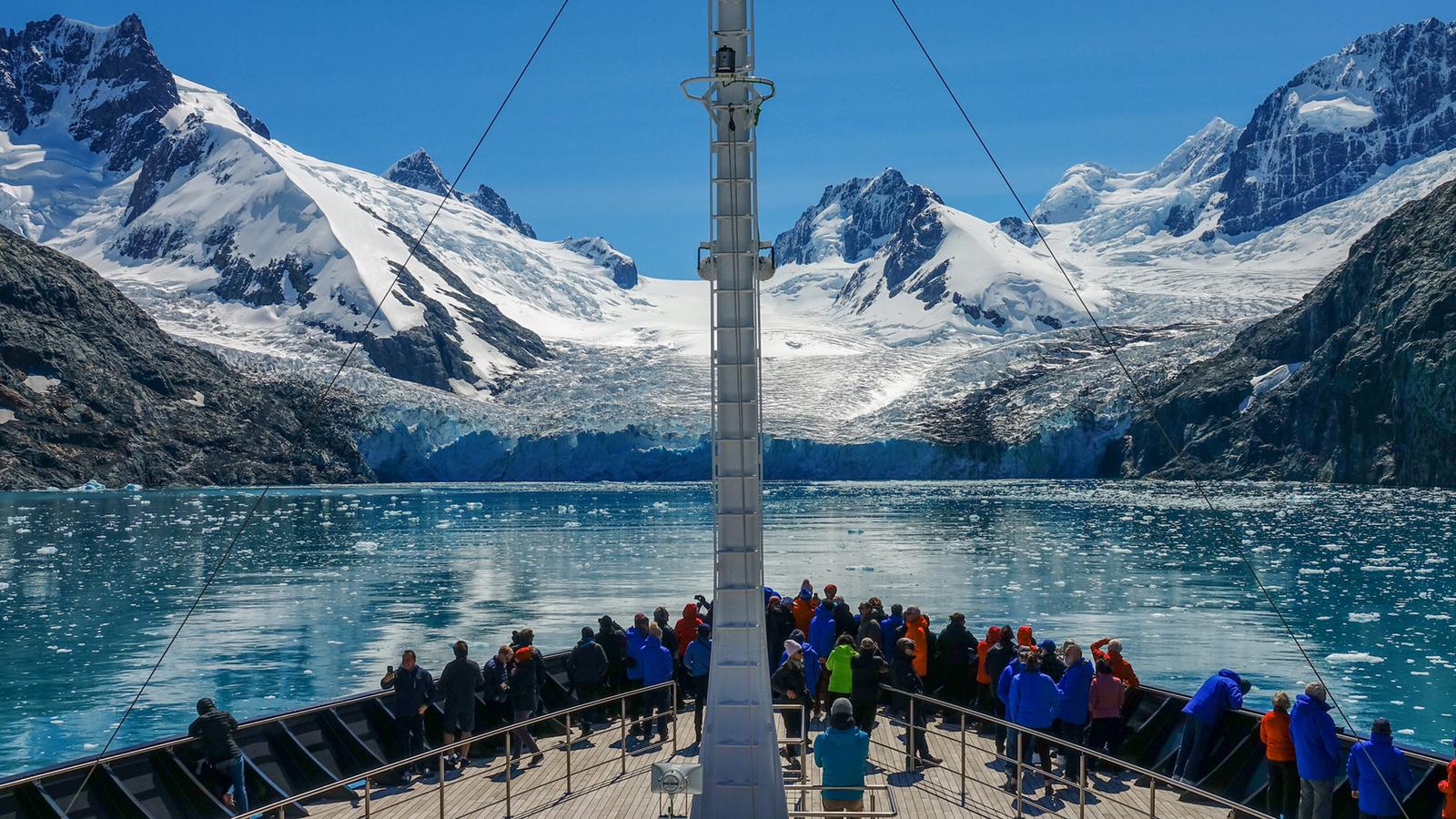
Due to its state-of-the-art equipment, it can sail all the seas of the world, even through the very iciest of waters. It also boasts its own submarine and even two helicopters. Its production cost more than 200 million euros in total, and the vessel you're looking at was constructed in Uljanik in Pula, Croatia. It has already sailed half of the world.
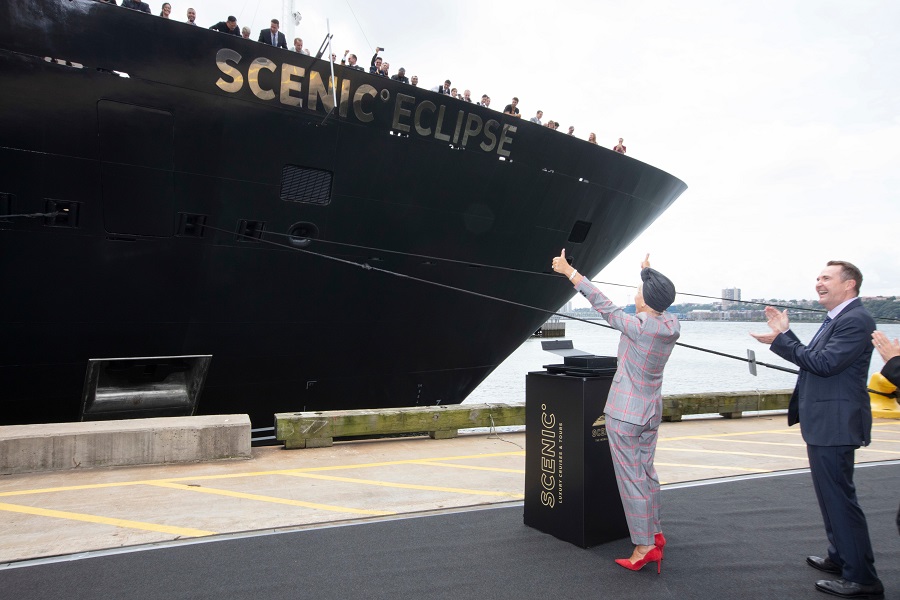
(Dame Helen Mirren christening Scenic Eclipse in New York)
"This is one of the most sophisticated and elegant ships of this type. We can all be proud that such a ship was made in Croatia. What makes this ship stand out is the luxury, a penthouse of about 200 square metres, offering dishes from different cuisines from across the world, from Asian to French,'' points out Sasha Cokljat of Scenic Group.
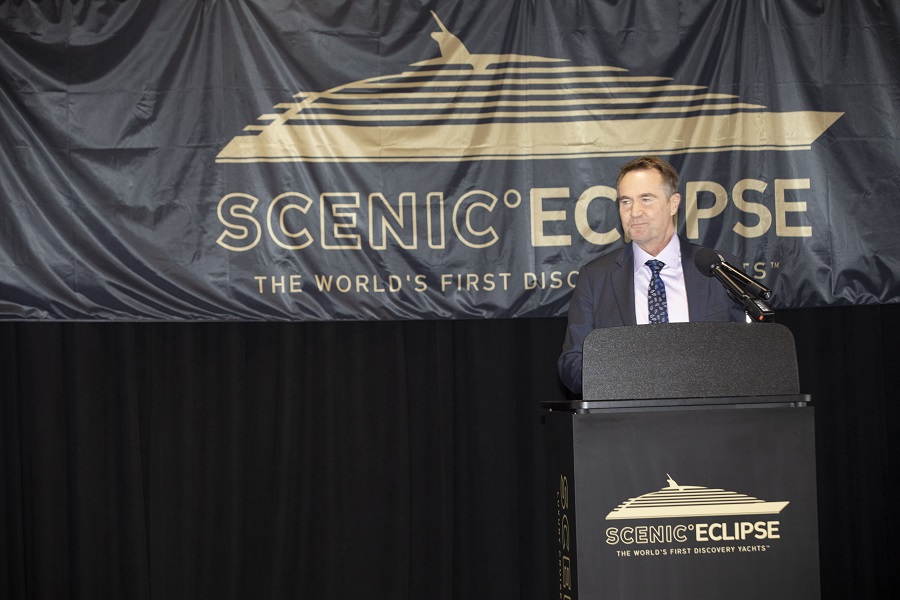
(Scenic Group owner Glen Moroney at the christening of Scenic Eclipse)
Satisfied with the work done by Uljanik for them, Australian investors now want to build five more ships like this to be constructed at Rijeka's 3 Maj shipyard. Glen Moroney, the owner of Scenic Group with extensive shipbuilding experience, is behind the whole project. Glen himself has come to see the expertise of local shipbuilders several times now.
"We were able to keep that nucleus of knowledge that was in Uljanik in 3 Maj. The whole team is Croatian, and that's exactly what we base our further development on and we think we can do it in Croatia. We're looking for some modality for joint construction and we're also in talks with the 3 Maj shipyard and with the Croatian Government,'' Cokljat stated.
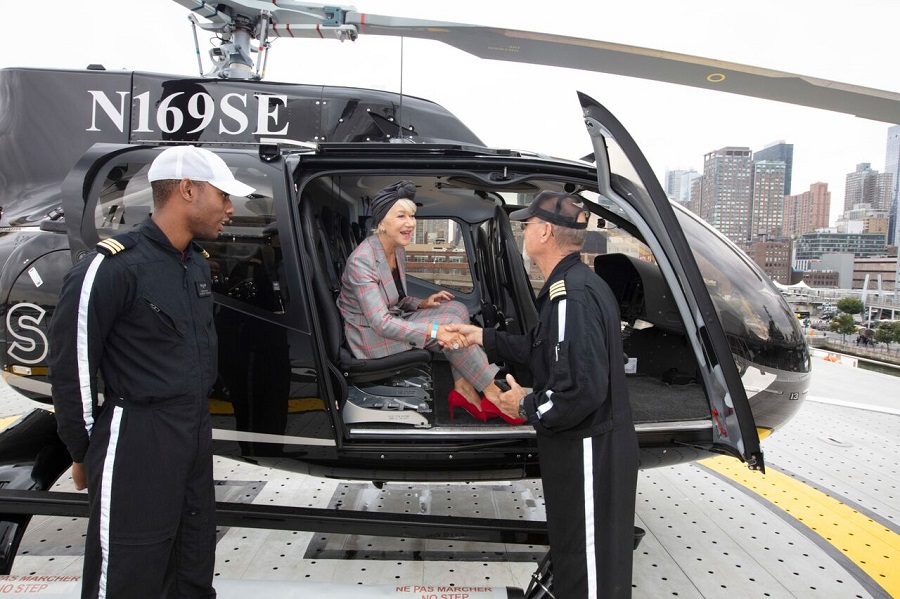
The Ministry of Economy has confirmed that there is serious interest from Australians. And what can be said about everything that has happened at 3 Maj which has produced more losses than it has ships in recent years? Hundreds of workers have left, but the quality of vessels made there is still recognised by investors.
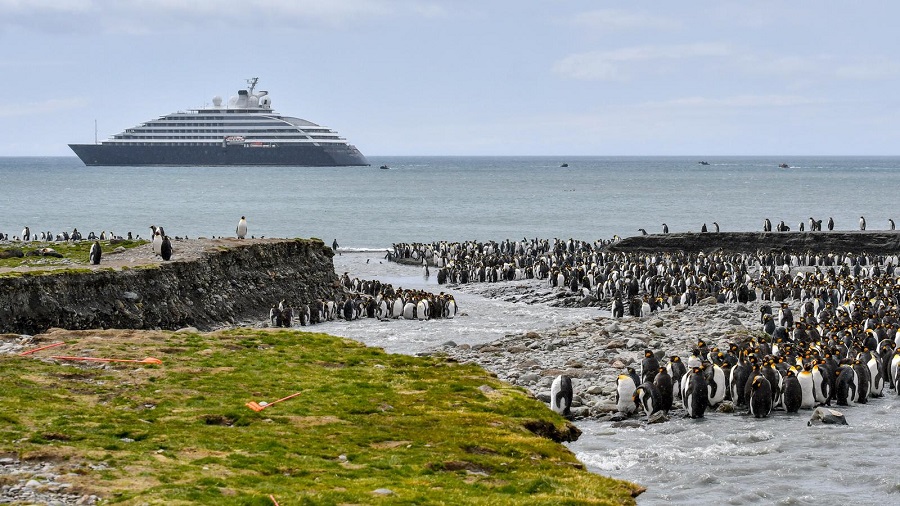
"It would mean one big plus, one boat is not enough work, one has to strive to get as much work as possible. Many things have changed, first of all - we get paid, our salaries have become regular," said Dalibor Cupkovic of 3 Maj's Trade Union Committee.
Five new exclusive cruisers would be a guarantee that this would continue. The job would go on until least until 2026, which would mean a minimum of 900 million euros of new investments in the Rijeka shipyard.
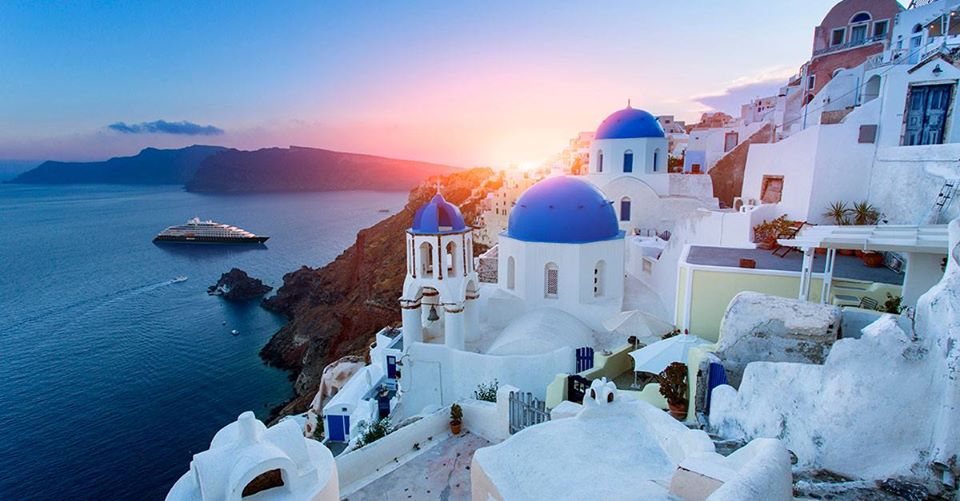
TCN reached out to Moroney for comment on the potential deal:
"We are very much aware that the Government of Croatia is actively pursuing a solution for shipbuilding in Croatia and our wish is to progress this exciting proposal with the government and the shipyard. We have already proven that together with Croatian engineers and shipbuilders we can build one of the most sophisticated cruise ships in the world, even under extraordinary circumstances. Scenic Eclipse did not cost Croatian taxpayers a penny and no state guarantees were taken. We finished the ship ourselves and now that we have the knowledge and practical experience, we are very confident that we can build and deliver five more ships in Croatia. The Government is being very cooperative and open with us so I look forward to the positive development and future of Croatian shipbuilding.”
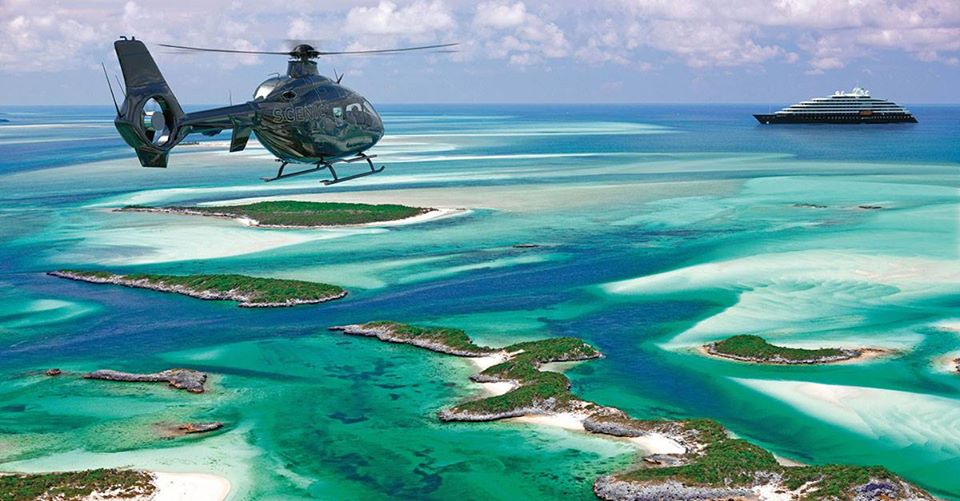
Great news potentially for Croatian shipbuilding, an industry where it has traditionally competed with the best in the world. From Tesla to Rimac Croatia has proved that it can deliver technologies that change and amaze the world. Scenic Eclipse and its fellow polar discovery yachts is the latest and could, just like Rimac, become Croatian top export technology product setting the standards globally.
Make sure to follow our dedicated Made in Croatia page for much more.

